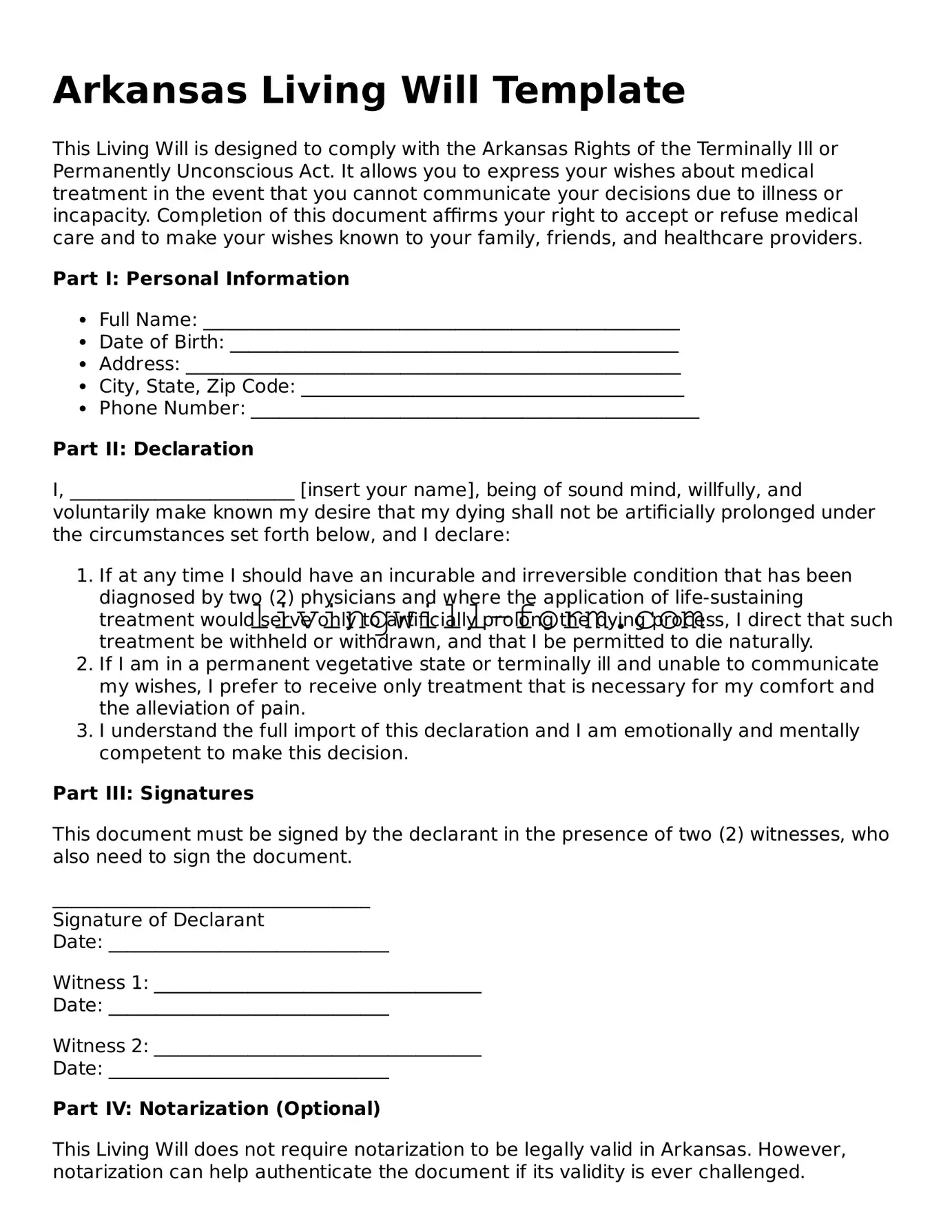What is a Living Will form in Arkansas?
A Living Will form in Arkansas is a legal document that allows individuals to outline their wishes regarding medical treatment and interventions if they become incapacitated and unable to communicate those decisions themselves. It typically includes preferences on life-sustaining treatments, artificial hydration, and nutrition.
Who should have a Living Will?
Any adult individual who wishes to make their health care preferences known in advance should consider completing a Living Will. It is particularly important for those facing surgery, with a chronic illness, or with strong feelings about certain medical treatments.
How can I create a Living Will in Arkansas?
Creating a Living Will in Arkansas involves drafting a document that specifies your health care wishes. This document needs to meet state-specific requirements, such as being signed in the presence of witnesses or a notary. Templates or services by legal professionals can help ensure that the document is valid.
Do I need a lawyer to make a Living Will in Arkansas?
No, you do not need a lawyer to make a Living Will in Arkansas, but consulting with one can help ensure that the document accurately reflects your wishes and meets all legal requirements.
Can I change my Living Will?
Yes, you can change your Living Will at any time. To do so, you should create a new document that reflects your current wishes and comply with Arkansas law regarding the revocation of the previous document.
What happens if I don't have a Living Will?
If you do not have a Living Will, decisions about your medical care will be left to your family members or, if unavailable, to medical professionals. This may result in treatments being carried out or withheld contrary to what you might have wanted.
Is a Living Will the same as a Last Will and Testament?
No, a Living Will is not the same as a Last Will and Testament. A Living Will concerns decisions about healthcare and medical treatments when you are incapacitated, while a Last Will and Testament addresses the distribution of your property after your death.
Do healthcare providers in Arkansas have to follow my Living Will?
Yes, healthcare providers in Arkansas are generally required to follow the wishes outlined in a valid Living Will, provided that the medical scenarios it addresses are currently applying to the patient's situation.
How does a Living Will affect my family?
A Living Will can help prevent disagreements among family members by making your healthcare preferences clear. It also relieves your loved ones from the burden of making difficult decisions on your behalf.
Can my Living Will include conditions for mental health treatment?
Yes, you can include preferences regarding mental health treatment in your Living Will. However, the specificity and enforceability of such requests can vary, so it may be wise to consult a professional when drafting these portions of your document.

